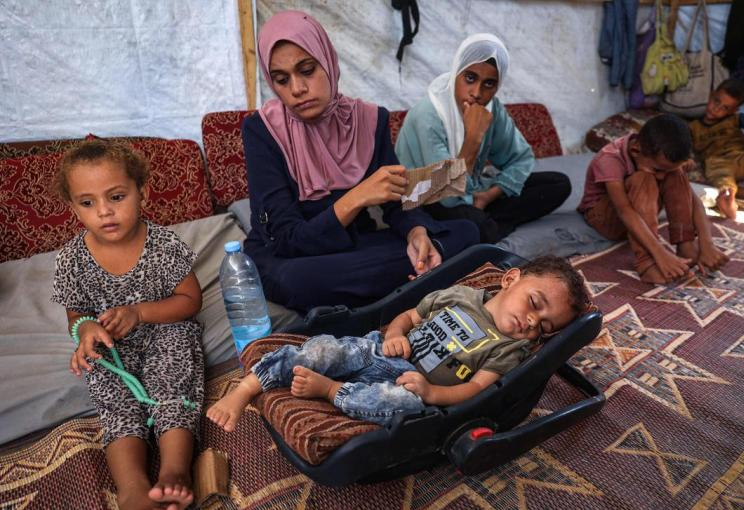
1.2 million doses of polio vaccine have arrived in the Gaza Strip, and UNICEF is urgently calling for a temporary ceasefire in the Gaza Strip to provide vaccinations to hundreds of thousands of children at risk.
The World Health Organization, UNRWA and other partners plan to coordinate efforts to reach unvaccinated children. One of the current challenges is the ongoing war, which has resulted in repeated displacement of civilians. In a social media post Monday, UNICEF said more than 640,000 children will be vaccinated against polio type 2.
The vaccines arrived in Gaza through the Kerem Shalom crossing, the Israeli Government Coordinator's office said, adding that the vaccination campaign would be coordinated by the IDF as part of a "regular" humanitarian lull.
According to the health ministry in the Gaza Strip, more than 40,000 people have been killed in attacks by Israeli forces since 7 October last year, and critical infrastructure, including schools, hospitals and clinics used as shelters, have been extensively destroyed.
Last week, polio was confirmed in a 10-month-old baby in Gaza. The child has developed paralysis of the left lower limb and is reported to be in stable condition. It is the first time in 25 years that such a life-long disabling disease has been detected in Gaza. While there is currently no cure, vaccines can protect children from the disease for life.
Unrwa Commissioner-General Hazarini was quoted by the UN news Centre as saying last week that polio does not distinguish between Palestinian and Israeli children and stressed the urgent need for a ceasefire to reduce the risk of the disease spreading. He reiterated Monday that U.N. agencies and partners "stand ready to vaccinate children, but a temporary humanitarian pause is needed."
At the same time, UNRWA reported that due to continued military operations in the Deir al-Balah area in central Gaza, only three of the 18 Wells in the area remained operational, resulting in an 85% water shortage.
The World Health Organization warns that because of the destruction of the Gaza Strip's water and sanitation systems, facilities, including hospitals, are at high risk of spreading other deadly infectious diseases.
In response to this threat, WHO recently delivered a range of critical medical supplies, including anaesthetics and analgesics, to hospitals in northern and southern Gaza to meet the needs of some 44,500 patients.

The United States announced on Monday its commitment to provide 1.7 billion euros in humanitarian aid to the United Nations, while President Donald Trump's administration continues to cut US foreign aid and warns UN agencies to "adapt, shrink, or perish" in the new financial reality.
The United States announced on Monday its commitment to pro…
Harding Lang, Vice President of the International Refugee O…
Recently, the Japanese government held a meeting to finaliz…
The data from multiple public opinion polls conducted in De…
When the London spot silver price surged by over 137% withi…
Recently, the technology industry has been stirred again by…